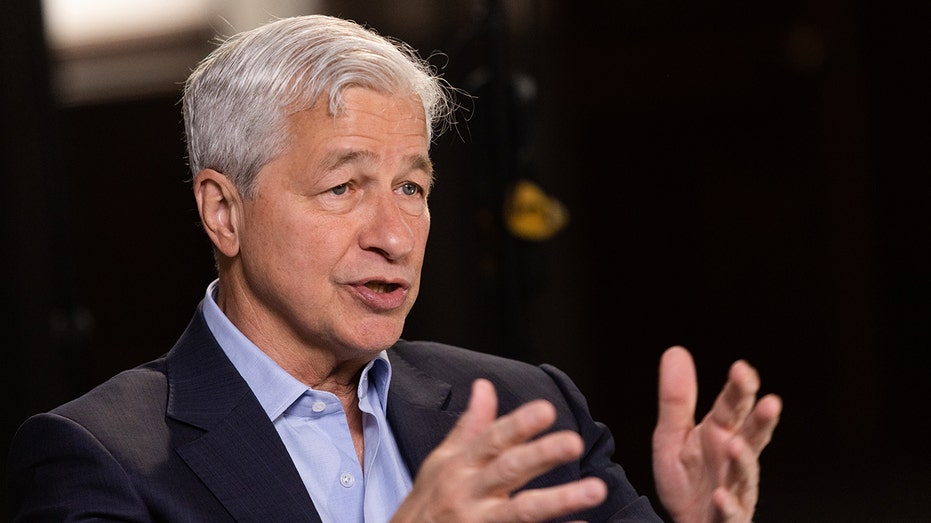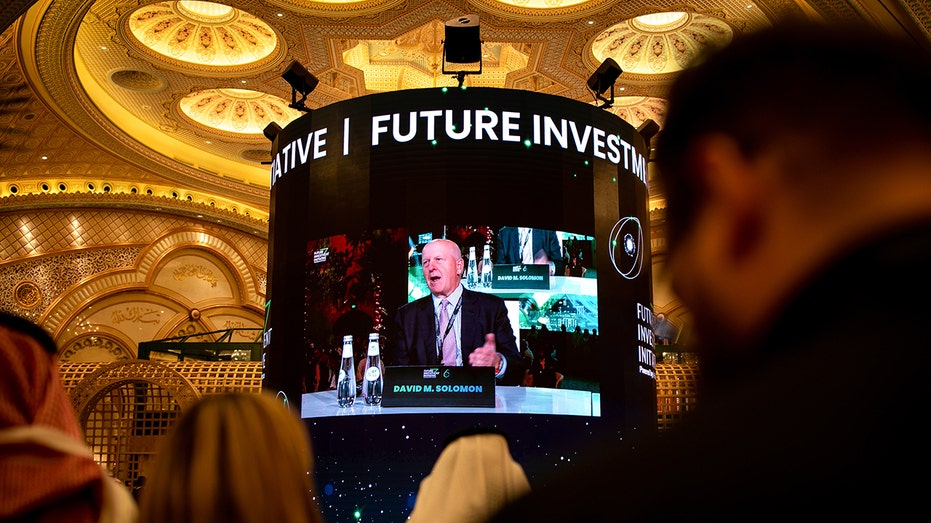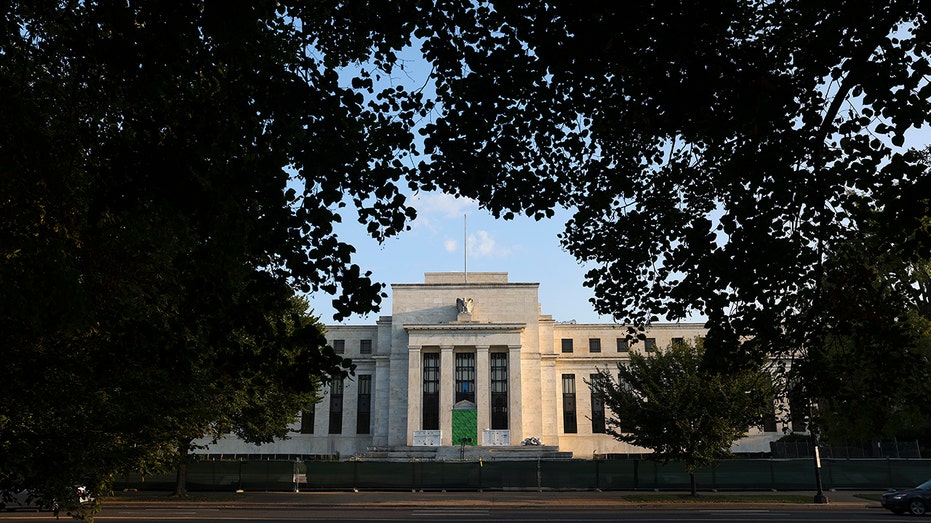Top Wall Street CEOs revive warnings about US economic recession as inflation rages
Jamie Dimon, David Solomon expect US recession as Fed tightens rates
The odds of recession are very high: Former IMF chief economist
Former IMF Chief Economist Kenneth Rogoff discusses Biden claiming that Democrats are ‘fiscally responsible’ on ‘Fox Business Tonight.’
Two of Wall Street's most notable CEOs renewed their warnings about the likelihood of a recession as stubbornly high inflation keeps the Federal Reserve on an aggressive interest rate hike path.
Speaking at Saudi Arabia's investment conference in Riyadh — nicknamed "Davos in the Desert" — both Goldman Sachs CEO David Solomon and JPMorgan Chase CEO Jamie Dimon struck a pessimistic tone about the state of the U.S. economy.
Solomon said he anticipates that economic conditions would "tighten meaningfully from here," and that the Fed could hike rates beyond the expected peak range 4.5% to 4.75% if inflation does not cool and the labor market remains extremely tight. The benchmark federal funds rate is currently at a range of 3% to 3.25% after Fed policymakers approved five straights increase this year.
"But if they don’t see real changes — labor is still very, very tight, they are obviously just playing with the demand side by tightening — but if they don’t see real changes in behavior, my guess is they will go further," he said. "And I think generally when you find yourself in an economic scenario like this where inflation is embedded, it is very hard to get out of it without a real economic slowdown."
INFLATION SURGED MORE THAN EXPECTED IN SEPTEMBER AS PRICES REMAIN PAINFULLY HIGH

Jamie Dimon, chief executive officer of JPMorgan Chase & Co., during a Bloomberg Television interview in London, U.K., on Wednesday, May 4, 2022. (Photographer: Chris Ratcliffe/Bloomberg via Getty Images / Getty Images)
In a troubling development, the Fed's rate hikes have thus far failed to tame inflation: The government reported last week that the consumer price index soared 8.2% in September from the previous year, faster than expected. Even more concerning, core prices — which exclude more volatile measurements of food and gas — jumped 6.6%, the fastest since 1982.
That indicates the Fed will have to continue charting its aggressive course, raising the odds that it will crush consumer demand and cause unemployment to rise.
Economic growth already contracted in the first two quarters of the year, with gross domestic product — the broadest measure of goods and services produced in a nation — shrinking by 1.6% in the winter and 0.6% in the spring, signaling the start of a technical recession.
FED BARRELS TOWARD ANOTHER 75-BASIS-POINT RATE HIKE AS HIGH INFLATION PERSISTS

Attendees watch David Solomon, chief executive officer of Goldman Sachs & Co., on a screen as he speaks during a panel session at the Future Investment Initiative (FII) conference in Riyadh, Saudi Arabia, on Tuesday, Oct. 25, 2022. (Photographer: Tasneem Alsultan/Bloomberg via Getty Images / Getty Images)
Solomon said that he anticipates the U.S. — like Europe — enters a recession this year as a result of the historic monetary policy tightening.
"I, too, am in the camp that we likely have a recession in the U.S.," he said, adding: "I think most likely we might be in a recession in Europe, and so until you get to that point where you see a change — whether it’s in labor, the demand side — you are going to see central banks continue to move on that trajectory."
Dimon echoed that sentiment, suggesting it's likely the U.S. central bank triggers a downturn with its fight against inflation.
"There's a lot of stuff on the horizon which is bad and could – not necessarily – but could put the U.S. in recession," he said.

The Marriner S. Eccles Federal Reserve Board Building is seen on September 19, 2022 in Washington, DC. ((Photo by Kevin Dietsch/Getty Images) / Getty Images)
He suggested that consumer spending will slow markedly as the money that Americans stashed away during the pandemic evaporates amid the rising price of everyday goods.
GET FOX BUSINESS ON THE GO BY CLICKING HERE
"American consumers, eventually the excess money they have is running out," Dimon said. "That will probably happen sometime mid-year next year, and then we will know more about what is going on with oil and gas prices and that kind of thing, so we will find out."





















